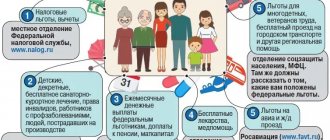Funeral benefit is a special social payment designed to compensate for funeral expenses. It is issued to preferential categories of citizens who cannot pay for the funeral ceremony on their own. The measure is intended to support low-income people and help them organize a worthy farewell to the deceased.
How the benefit is paid and what its amount can be found out from Law No. 8 “On Burial and Funeral Affairs,” adopted back in 1996. The minimum amount of compensation is equal to the established cost of burial at municipal expense: in 2021 it is 5,740.24 rubles. In this case, the amount of payment can increase up to ten subsistence minimums accepted in a particular region.
Question: An employee of the organization died in an accident along with his entire family (wife and two children). To whom and in what amount (only for the employee or for family members too) should funeral benefits be paid? View answer
Funeral benefit amount in 2021
Amounts of funeral benefits in 2021 (Clause 1, Article 9 of the Federal Law of January 12, 1996 No. 8-FZ “On burial and funeral business”):
- from 01/01/2021 to 01/31/2021 - 6,124.86 rubles. (Resolution of the Government of the Russian Federation dated January 29, 2020 No. 61).
- from 02/01/2021 - 6,424.98 rub. (Resolution of the Government of the Russian Federation dated January 28, 2021 No. 73).
These amounts are increased by the regional coefficient if it is established in your area (Clause 1, Article 10 of Federal Law No. 8-FZ):
Regional surcharges
In addition to the generally accepted regional coefficient, there is such a thing as regional payments. They are set by local authorities based on budgetary capabilities, living standards and expenses of the population in the area.
For example, for the burial of a veteran of the Great Patriotic War who lived in Moscow, an additional payment to the relatives of the deceased can reach 38,400 rubles. This maximum amount was approved by the City Government. For other Muscovites, the additional payment is about 11,000 rubles.
Regional surcharges can be fixed or indexed to the inflation factor, just like state benefits. If local authorities do not have a sufficient budget to provide such subsidies, then residents will receive only the amount established by Law No. 8 of January 12, 1996, taking into account the indexation adopted at the current time.
Where to apply for benefits
Funeral benefits in 2021 are paid (Articles 9, 10 of Federal Law No. 8-FZ):
| Who will pay the funeral benefit? | In which case |
| Employer |
|
| Territorial department of social protection at the place of residence |
|
| Territorial department of the FSS |
|
| Regional branch of the Pension Fund of Russia |
|
Other payments to the Pension Fund
Compensation for funeral expenses is not the only money due to the relatives or heirs of a deceased pensioner. To figure out how to receive funeral money for a deceased pensioner in the form of a lost pension for the month of death, you need to clarify the pension transfer schedule. If the date of transfer of the pension for the month of death is later than the date when the person died, the Pension Fund is obliged to pay the pension to the heirs at their request. Only close relatives or heirs have the right to receive it upon application. In addition, the funded part of the pension is paid during work; this requires a separate application.
Documents for receiving funeral benefits
The set of documents for receiving funeral benefits looks like this (clause 2, article 10 of Federal Law No. 8-FZ):
- identification document of the applicant;
- application for payment of benefits;
- death certificate issued by the civil registry office.
Sometimes additional documents may be required. Their list should be obtained from the source of payments (from the employer, the Pension Fund of the Russian Federation, Social Insurance Fund, social security authorities).
For example, when paying a funeral benefit for a deceased pensioner who was not working on the day of death, you will need to present the deceased’s work book as a document confirming the fact that the pensioner was not working on the day of death. And in the event of the death of an unemployed person (not a pensioner), a certificate from the employment service will be required - a document confirming the fact of absence of work on the day of death.
It is not necessary to provide any documents (cash receipts, contracts, receipts) confirming expenses incurred in connection with the funeral to receive benefits.
Useful information from ConsultantPlus
Check out the sample documents drawn up in connection with the payment of funeral benefits:
– Application for payment of social benefits for funeral;
– Order for payment of social benefits for the funeral of a deceased employee.
How does the legislator regulate the issue of expenses related to funerals?
The funeral of the deceased falls on the shoulders of his relatives, other close people or the state, if he had neither one nor the other. However, even if there are relatives, the state still takes part in the funeral process, explicitly and indirectly.
Firstly, the Civil Code contains two articles that relate to different sections of it, but regulate one issue of distribution of expenses for the burial of the dead.
This is Article 1174, which determines the procedure for reimbursement of funeral expenses from the inheritance and, accordingly, relates to the section of the Civil Code that regulates inheritance issues.
There is also Article 1094, which establishes the obligation to compensate for funeral expenses for the one who is responsible for the damage that caused the death of the victim. Secondly, the state promises those who organize and pay for this event financial support from the state itself.
Funeral benefit in 2021 in the system of direct payments from the Social Insurance Fund
In 2021, despite the transition of all employers to a system of direct payments from the Social Insurance Fund, funeral benefits are still paid by the employer with subsequent reimbursement of the amounts paid from the Social Insurance Fund. To receive compensation, the employer submits to the fund a death certificate and an application for reimbursement of benefits.
The FSS makes a decision within 10 working days from the date of receipt of the documents and no later than 2 working days transfers the money to the employer’s current account (clause 13, clause 16 of the Regulations on the specifics of the appointment and payment of insurance coverage in 2021, approved by Government Resolution dated 30.12 .2020 No. 2375).
For questions regarding the assignment, payment and reimbursement of funeral benefits, you can contact the hotline of your regional FSS office.
Reimbursement of expenses by the person who caused the harm
The person through whose fault another died is required to reimburse the costs of those who organized and paid for the burial. Moreover, the latter are not necessarily relatives of the deceased.
Expenses subject to compensation are confirmed by providing invoices from stores and funeral agencies, sales and cash receipts, and acts of the funeral commission.
Looking ahead, it must be said: if you spent money on the burial of a loved one and received a social payment from the state, it does not count towards compensation for harm. Although it actually reduces the total amount of expenses by the corresponding amount.
Taxes when paying funeral benefits
Funeral benefits are not subject to personal income tax and insurance contributions and are not taken into account in tax expenses (clause 1 of Article 217 of the Tax Code of the Russian Federation, subclause 1 of clause 1 of Article 422 of the Tax Code of the Russian Federation, subclause 1 of clause 1 of Article 20 of the Federal Law of July 24 .1998 No. 125-FZ “On compulsory social insurance...”, Letter of the Federal Tax Service dated 09/03/2018 No. BS-4-11 / [email protected] ).
Phone number
The phone number remains valid even after the death of the owner. Telecom operators don’t care whether the owner of the number is dead or not, as long as money is received at the number and calls are made. To block a number, you need to not perform any active actions with the SIM card and after six months contact the mobile operator with a death certificate. In this case, the contract for using the number is terminated automatically, and the number will no longer be used.
If there is no money in the account to write off the subscription fee, the provision of communication services is suspended, and you cannot go into the red.
The situation is more complicated when the number of a deceased person must not only be blocked, but re-registered to another person. To do this, the heir under the will needs to come to the office of the telecom operator and provide a passport, a copy of the death certificate and a certificate of inheritance. The heir by law must present a document that confirms the degree of relationship.
Sometimes operators also ask for a certificate of right to inherit a telephone number. However, the telephone number does not relate to inherited property, and notaries refuse to issue such a certificate.
Some operators may not even be able to reassign a number to another person without the direct participation of the number owner. It is better to clarify this and the list of documents with your mobile operator.
If relatives need to continue to use the number of the deceased, then they can simply top up the account to avoid blocking and use it as usual.
Let's sum it up
Funeral benefits in 2021 are paid:
- in the amount of 6,124.86 rubles. (if death occurred before 01/31/2021) and 6,424.98 rubles. (taking into account indexation carried out on 02/01/2021);
- by the employer or other authorities, depending on the category to which the citizen belonged at the time of death (pensioner, unemployed, etc.);
- on the basis of a death certificate received from the registry office, the passport of the benefit recipient and his application. Sometimes additional documents are required, which can be obtained from the source of benefit payment.
Who else can receive benefits?
The benefit for organizing a funeral will not be paid to relatives or other persons if they were provided with a list of services free of charge by a specialized funeral organization.
Such procedures include:
- preparation and execution of papers for funerals;
- delivery and receipt of a coffin and other attributes for the burial of the deceased in a cemetery;
- transporting the body to a cemetery or crematorium;
- burial of remains or urns with ashes.
The quality of services provided by specialized funeral services is controlled by local authorities. Prices for this list of funeral services are fixed, and compensation to the institutions that carry out the burial is carried out within ten days after the funeral. In this case, the payment amount is also 5,746.47 rubles, taking into account the regional coefficient.
In cases where the organization of a funeral must be carried out on an emergency basis, it is not always possible to collect the amount or all the papers in order to receive government assistance. Then you can get a credit card and spend money from it. But when paying for all services during burial, you should remember that amounts spent in excess of the amount established by the state will not be compensated.
about the author
Klavdiya Treskova - higher education with qualification “Economist”, with specializations “Economics and Management” and “Computer Technologies” at PSU. She worked in a bank in positions from operator to acting. Head of the Department for servicing private and corporate clients. Every year she successfully passed certifications, education and training in banking services. Total work experience in the bank is more than 15 years. [email protected]
Is this article useful? Not really
Help us find out how much this article helped you. If something is missing or the information is not accurate, please report it below in the comments or write to us by email
Who will not receive compensation
Relatives do not always take care of funerals: relatives, colleagues, sometimes cohabitants and lovers, relationships with whom were not officially registered, invest their money in a worthy send-off. In this case, you will not be able to receive compensation from Sberbank.
To receive it, you must prove your relationship with the deceased or provide a testamentary disposition.
Also, those whose deceased relatives managed to receive the payment that was due to Sberbank depositors earlier cannot count on compensation.
Who is entitled to compensation for funeral services?
Only relatives of the deceased can apply for partial compensation for funeral expenses. This is enshrined at the legislative level and (for 2021-2021) is not disputed. However, the heirs and relatives of the deceased are not always ready to shoulder such impressive unplanned expenses. Often friends, lovers and other people who are not related to him by blood are involved in organizing the funeral. Sberbank, as a rule, refuses to receive payments to such performers. Then the following scheme is used to receive money: relatives who are entitled to payment submit documents on their own behalf, receive compensation and transfer it to the real funeral organizers.
Concept of inheritance
Inheritance is the transfer of property, rights, and obligations of the deceased to his heirs, the circle of whom is determined by law or will.
Rights include copyright, invention and obligations of the deceased. Full disposal and alienation of property is possible only after six months.
Property and non-property rights are not inherited if they are inextricably linked with the personality of the deceased (Article 418 and Article 1112, Part 2 of the Civil Code of the Russian Federation), or if the transfer of this type of rights is regulated by separate legislative acts.
Meaning:
- payment of alimony;
- receiving a pension;
- financial compensation for harm caused to health;
- some state awards.
This may include half of the joint property acquired during marriage, provided that the second spouse is alive. After all, a priori, half of the property legally belongs to him.
The concept of inherited property
These are things that are owned by the deceased during his lifetime and pass to his successors.
This applies to:
- real estate (houses, cottages, apartments, garages, buildings, land plots);
- movable property (transport, deposits, securities, jewelry, household items, share in the authorized capital of a legal entity).
Things pass to the new owners in full, in the form in which they belonged to the deceased. If the deceased has a deposit on which interest was accrued, then after six months the entire amount will be inherited.
When can a bank refuse to issue funds?
If there are grounds, the bank issues the savings of the deceased person to citizens. However, there are cases when it may refuse. A reasoned refusal is usually issued after checking the documents provided.
The basis for it will be:
- the legality of the successors' demands was violated;
- the presence of debts to credit institutions that need to be repaid urgently;
- the deposit is secured;
- are compiled with violations or the list is not complete.
Practice shows that cases of refusal by Sberbank to issue a sum of money are rare. If the heirs have not claimed rights to the deceased’s savings (or they simply do not exist), they become the property of the state.
The City Ritual Service of St. Petersburg stores all documentation about completed orders
The City Funeral Service of St. Petersburg understands the financial difficulties that arise when organizing the burial of a loved one. We will provide comprehensive consultations to the relatives of the deceased on the possibility of obtaining additional funds to pay for funeral goods and services. Our employees are meticulous in completing all documents. Therefore, if you need to document your expenses, we will be ready to provide the entire package of checks and receipts, even after a while. All acts and contracts for funeral services provided and goods purchased from us are stored in the archives. You can agree on the provision of documentary evidence and get the answers you need on funeral issues by phone. Our Information Center operates 24 hours a day.
Documents required for drawing up a notary decree
Repeated requests for compensation are not permitted. Therefore, from the first time it is necessary to provide evidence of all expenses in the form of sales receipts, receipts for payment for services, an agreement with the funeral agency, and so on. If compensation is requested by a relative, then documentary evidence of relationship with the deceased will be required.
Note. If a paid resuscitation team was called, then the costs of paying for it are also subject to compensation among other funeral expenses.
Ultimately, the decision to formalize the decree is made by the notary, who has the right to refuse registration if he suspects fraud or misuse of the funeral payment. The absence of a will or instructions for a contribution in a will should not become a basis for refusal to issue a notarial order. A negative decision of a notary can be challenged in court.
The procedure for inheriting bank deposits
Contributions have their own characteristics during inheritance. The bulk of them are located in Sberbank.
The procedure for inheriting money in all banking institutions in Russia is identical.
Types of inheritance of bank deposits:
- In law.
- Based on a will.
- By testamentary disposition.
How to receive money from the card of a deceased relative in Sberbank by inheritance?
First, you need the notary to add the assets located in Sberbank to the estate and then distribute them among the successors in shares. Each option has its own inheritance procedure.
Inheritance by will
You should contact a notary at your place of residence and draw up a statement of desire to enter into an inheritance. He opens a case in which a circle of legal successors will be designated.
The case is opened from the calendar date of the citizen’s death (Article 1113 and Article 1114 of the Civil Code of the Russian Federation).
To start the procedure at a notary's office, you need to write an application and submit documents.
Scroll:
- passport;
- statement;
- details of a savings account or deposit;
- passbook;
- death certificate of a person.
If several persons are indicated in the document, then the savings will be divided in the amounts specified in the will. When parts are not specified, the division is made proportionally in equal shares.
Note! If the will is not made for the surviving spouse, but for another person, half of the savings will go to him. Since money, regardless of where it is located, is jointly acquired property.
When the deceased has minor children, disabled parents and dependents in accordance with Art. 1149 they receive at least 50% of the share that would be due to them by law, regardless of the will.
The issuance of savings in Sberbank can be issued six months after the death of the owner of the deposit, subject to all procedures for entering into an inheritance.
To receive money from the deceased's account you need:
- passport;
- certificate of inheritance;
- passbook or account number.
After this, bank employees will check their authenticity and legality. This takes from 3 to 5 days.
If this is a savings account where interest is accrued and its validity expires after a few months, the citizen himself decides whether to withdraw funds immediately and lose profits, or wait until the deposit period expires.
In this case, the procedure does not change, but is only postponed, for which changes are made to the agreement on the change of owner.
Inheritance by law
All movable and immovable property is inherited according to the law between heirs (Article 1141 of the Civil Code of the Russian Federation) in accordance with the order. There are 8 (eight) groups (queues).
If a savings book remains after the death of the mother, the first category has priority. If there are no representatives, then the right passes to the second and subsequent categories.
Note! Article 1149 of the Civil Code of the Russian Federation states that spouses, children, parents, and dependents have a mandatory share, regardless of the will. Registration of deposits in Sberbank takes into account the presence of the category of obligatory heirs. Their share must be at least 50%.
You must come to the notary and present a package of documents to submit an application to become an heir:
- passport;
- death certificate;
- confirm relationship with the deceased (marriage and birth certificate);
- bank account details.
After opening the inheritance case, the notary begins a search for the property of the deceased, sending requests to the appropriate authorities within six months. During this period, successors must indicate their rights to the inheritance or renounce it.
If for some reason a person missed 6 months, he can apply to the court to restore his rights. In court, he must prove that he had good reasons why he missed the deadline - he could not come, did not know about the tragic event, was on a long business trip.
During the process of registering an inheritance, the law allows for the possibility of refusing it. If there is no refusal, each of the successors is issued a notarized certificate indicating the amount of property that is transferred to him. The same applies to savings.
To be able to withdraw money from the deposit, you need to provide, in addition to the certificate:
- passport;
- passbook or account details;
- death certificate of a person.
After checking the documents, Sberbank will decide to issue them. If there are several legal successors, they can delegate one and withdraw all finances from the account, which will then be divided between the parties. Trust is important here when carrying out such a procedure.
Inheritance by testamentary disposition
Another legal document for withdrawal of savings is a testamentary order to the account , which is drawn up directly in the bank by the depositor at any time and reflects the will to transfer money after his death to a specific person or several.
There are 4 types of testamentary disposition:
- sub-appointment of an heir;
- laying on;
- appointment of an executor;
- testamentary refusal.
Depending on the need, a person chooses the one that suits him. In general, all types have the goal of redirecting their finances to a third party.
To accept money by order, which was drawn up after March 1, 2002 in accordance with Art. 1128 of the Civil Code of the Russian Federation should be provided:
- testamentary disposition for the deposit;
- passport;
- death certificate;
- notarized certificate of inheritance.
If it was drawn up before March 1, 2002, then in this case it is sufficient:
- death certificates and passport;
- deposit details;
- passbook.
Note! If, after making an order to the bank, a citizen draws up a will, where he indicated the account number, the last document drawn up will have legal force.









